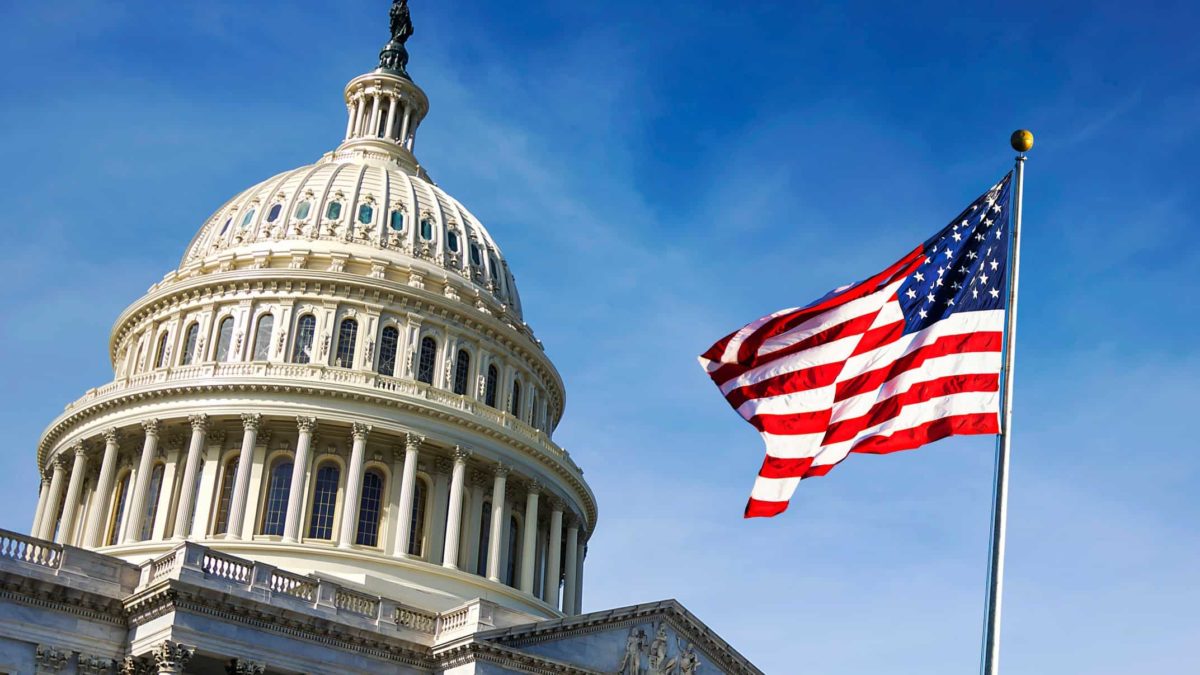At 4 am this morning (our time), Joe Biden took the oath of office to become the United States of America's 46th President. President Biden's term runs until 20 January 2025.
Regardless of personal feelings or political views, this change is a monumental one. A new administration means new domestic policies for the US economy. This includes new paradigms in foreign relations for the United States.
For this reason, there will be some new angles for ASX investors to consider today as a new post-Trump era begins.
President Biden has apparently already hit the ground running. According to reporting in The Guardian today, Biden has already signed a raft of 'game-changing' executive orders on his first day as president. These include mandating the use of face masks across all federal government properties and re-entering the US into the Paris Climate Accord.
Regarding the latter, the report notes that, as President, Biden will be able to "unilaterally limit fossil fuel development on federal lands". His administration will also be able to mandate "tougher rules for fuel efficiency in cars and trucks". Tougher congressional action on climate change appears off the table for now.
The 2 chambers of congress remain very evenly divided. So expansive legislative action looks to be a tough ask at this point. Even so, Biden is set too "reverse 'more than 100' climate-related policies enacted by Trump" via executive action.
US stimulus set to be debated
Another one of the new president's goals looks set for an interesting arena over the coming weeks.
Last week, we discussed the details of Joe Biden's newly-proposed US$1.9 trillion stimulus package. This package reportedly is a priority for the new administration. It may find its way through the close dividend congress, given that the Democratic Party assumes a technical majority in the Senate today.
An economic priority for the Biden Administration is a new round of infrastructure spending. Reporting from CNN tells us that a large infrastructure bill is likely to be a close second priority behind Biden's coronavirus stimulus package.
CNN notes that infrastructure spending tends to have high levels of bipartisan support in congress. It also notes that any package will probably include funding for traditional infrastructure like roads, railways and bridges. In addition, more modern infrastructure like 5G networks may be included.
Is 'reflation' on the cards for the US?
So what does all this mean for ASX investors?
Well, the US is still the largest economy in the world. As such, any significant spending measures that give the US economy a sugar hit bode well for the Australian economy as well. If the large stimulus package is passed, it will also likely give the US share markets a boost as well. That's always good news for ASX investors in turn.
This view is backed up by an analysis of the inauguration from BetaShares. BetaShares reckons that increased levels of stimulus, enabled by Democratic control of Congress, has the potential to lead to a 'reflation' of the US economy.
That would see inflation rise. In turn, we could see interest rates 'normalise' from their current near-zero levels. If that does come to pass, BetaShares expects it will benefit the entire US market, albeit at the expense of the biggest tech companies:
More economically-sensitive companies with near-term cash flows can become increasingly attractive to investors. This could potentially see a renewed and sustained rotation away from the mega-cap tech companies towards the broader market.
A caveat to keep in mind though: the stimulus will likely increase the already-massive US deficit further. This could lead to a weakening of the US dollar. In turn, this will cause our dollar to commensurately rise. That's not such good news for the Aussie economy.
New infrastructure spending might be coming too
Turning away from the macro now. If the US does pass an infrastructure spending package, it will likely be good news for a dominant sector of the ASX resources.
Infrastructure requires large amounts of steel and other commodities. Even if the US chooses to pursue a 'buy American' policy, new infrastructure spending definitely won't hurt the global iron ore price for example.
Thus, any new infrastructure spending will likely benefit ASX giants like BHP Group Ltd (ASX: BHP), Rio Tinto Limited (ASX: RIO) and Fortescue Metals Group Limited (ASX: FMG).
However, it's possible that the Biden administration's position on fossil fuels might hurt some other ASX resources companies.
We're talking about companies like Woodside Petroleum Ltd (ASX: WPL) or Whitehaven Coal Ltd (ASX: WHC). Government-wide attitudes like what Biden is promising a have far-reaching effects, and investors would probably do well to keep this in mind.
In turn, this new attitude could help ASX renewable energy shares like Tilt Renewables Ltd (ASX: TLT). Even more so if the new administration's attitude prompts our own Federal Government to ramp up action on climate change.
Foolish takeaway
Changes of government in the world's largest economy can have wide-reaching and hard-to-gage consequences.
Thus, I think every ASX investor should take note of what is happening over in the US right now.
It could well influence where the ASX goes over the next 4 years and beyond!









